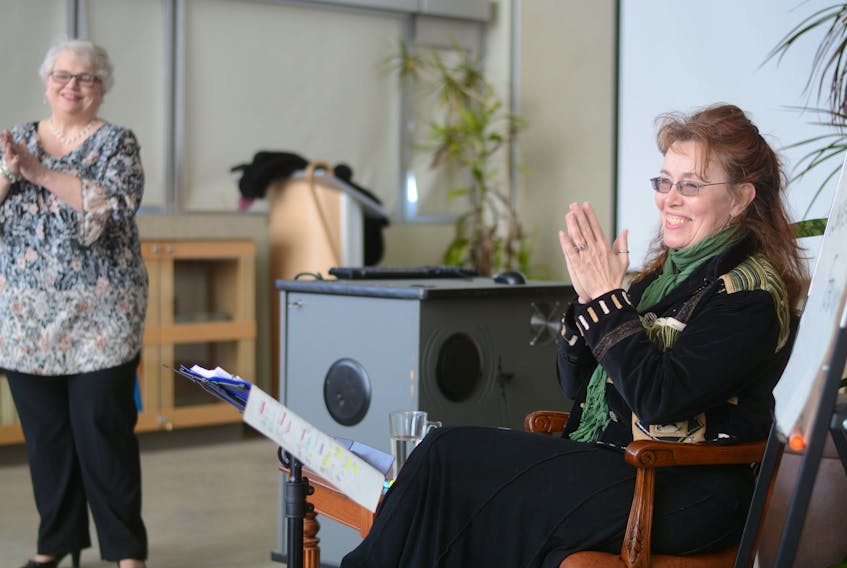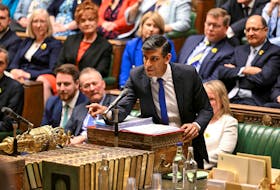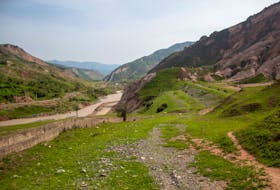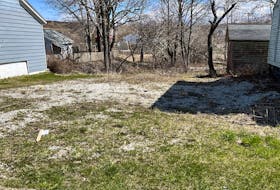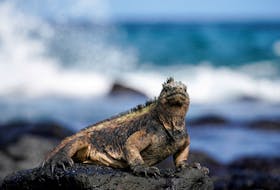JOGGINS, N.S. – Nature speaks to the heart, if you listen closely.
“I came to the cliffs to ask, ‘we’re standing at a critical time in our evolution, what wisdom do you have for us?’”
Elizabeth Glenn-Copeland read from her soon-to-be published narrative poem ‘Daring to Hope at the Cliff’s Edge: Pangea’s Dream Remembered’ on Feb. 18 at the Joggins Fossil Centre.
Glenn-Copeland created the poem during her 2018 ArtScape residency at the Joggins Fossil Centre.
Before reading, she said that, even as a child, she felt a strong connection with nature.
“I have long had a passion for communicating with the non-literate animate world that began in childhood, sitting high in the weeping willow behind my house in a big field,” said Glenn-Copeland. “So, when I was offered this writing residency which would allow me a chance to sit in the presence of these incredible story-tellers, the cliffs along the Bay of Fundy, I jumped at the chance.
To be published in 2019, Glenn-Copeland describes her poem as Eco-Poetry that focuses on the environment.
“Eco-Poetry. It’s a relatively new poetic genre. It ties in with how we honour this beautiful place we live in and how do we meet the challenges we face.”
One of those challenges is climate change.
“We in the developed world, we have to provide an example. We’re so caught up in saying we need more pipe lines and more shale gas. No, we don’t,” said Glenn-Copeland. “When people think of ending fossil fuels they think of what we will lose. Yes, we will lose some things, but we are going to gain way more. The options for renewable energy are ready to go.”
She says people need to take climate change more seriously.
“Most people don’t want to do their homework and end up in cycles of fear around things that aren’t really important,” said Glenn-Copeland. “People are missing the things for which fear was given to us and help us see the real dangers.”
She says, around the world, people are making the world a better place to live.
“There are so many amazing things happening around the planet that we don’t hear about in the news,” said Glenn-Copeland. “There are places in Africa where they took land that is desert and they planted things and renewed the soil. A lot of it is happening in third-world countries.”
And she believes the next generation will bring about real change.
“I think we’re seeing young people saying ‘sorry, you’re not doing it, we’re going to do it.’”
Originally from Ingersoll, Ont., Glenn-Copeland and her husband moved to Sackville, N.B. in 2011.
“We were drawn here by the beauty of the land and the kindness of the people,” said Glenn-Copeland. “There’s a kindness in the East Coast, and that is a kind of wealth you cannot put a price on.”

